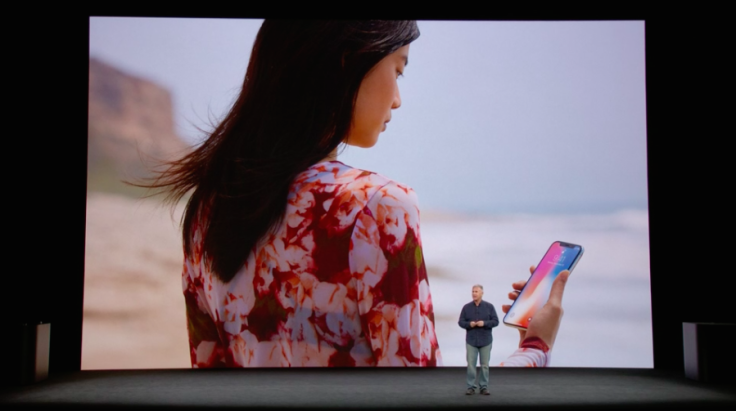iPhone X Face ID Concerns: Security, Privacy, Working With Sunglasses

New details about the iPhone X’s Face ID have surfaced. The feature will reportedly be limited to one person and will work with sunglasses, which had not been previously specified.
Apple revealed the iPhone X at its new Steve Jobs theater this week, and with it comes Face ID, a facial recognition feature that will take the place of the Touch ID. Face ID will work to unlock the device, with payments on Apple Pay, Animoji (Apple’s new customized animated emoji) and with third-party apps.
The feature keeps sensitive data safe with its True Depth camera system that includes an infrared camera. The camera detects the user’s face, even in the dark. The Face ID relies on the new A11 Bionic neural engine, which maps and recognizes a user’s face. The feature only unlocks the device when the owner looks at it and is designed to prevent it from being fooled by photos or masks, which happened with Samsung’s Galaxy S8.
Does Face ID Work With Sunglasses?
Apple had previously said Face ID works even if the user wears makeup, glasses, hats, scarves and if the user decides to grow or shave off their beard. Apple software engineering chief Craig Federighi recently said Face ID will also work with most sunglasses.
"Most sunglasses let through enough IR light that Face ID can see your eyes even when the glasses appear to be opaque. It's really amazing!" Federighi said in an email to developer Keith Krimbel, according to MacRumors.
Face ID and Thieves
Krimbel also asked a question everyone was thinking about during the keynote: What happens when a thief takes the user’s iPhone X, unlocks the device using Face ID and runs off?
Federighi clarified there are two factors against that.
"If you don't stare at the phone, it won't unlock," he said. “Also, if you grip the buttons on both sides of the phone when [you] hand it over, it will temporarily disable Face ID."
Face ID Limit
The Face ID will have a limit, recognizing only one face per device, Apple confirmed to TechCrunch. The limitation differs from the Touch ID on other iPhones, which allows users to add multiple fingerprints, even those that aren’t theirs. This means users who share their devices with family, like children or spouses, will have to divulge their passcode instead.
Face ID and User Privacy
After the iPhone X was revealed, Sen. Al Franken, D-Minn., wrote a letter to Apple CEO Tim Cook asking him to tell him about privacy concerns regarding the Face ID. In the letter, Franken asked whether Apple could protect the sensitive biometric information gathered by the new feature. He also asked if the Face ID camera will always be on and whether Apple assures it will not share data from the feature to third party apps.
“Unlike a password, an individual's faceprint is permanent, public, and uniquely identifies its owner,” wrote Franken. “As a result, should a bad actor gain access to the faceprint data that Face ID requires, the ramifications could last forever, particularly if Apple's biometric technology comes to be used in other devices and settings.”
Apple has until Oct. 13 to answer Franken’s questions.
© Copyright IBTimes 2024. All rights reserved.











